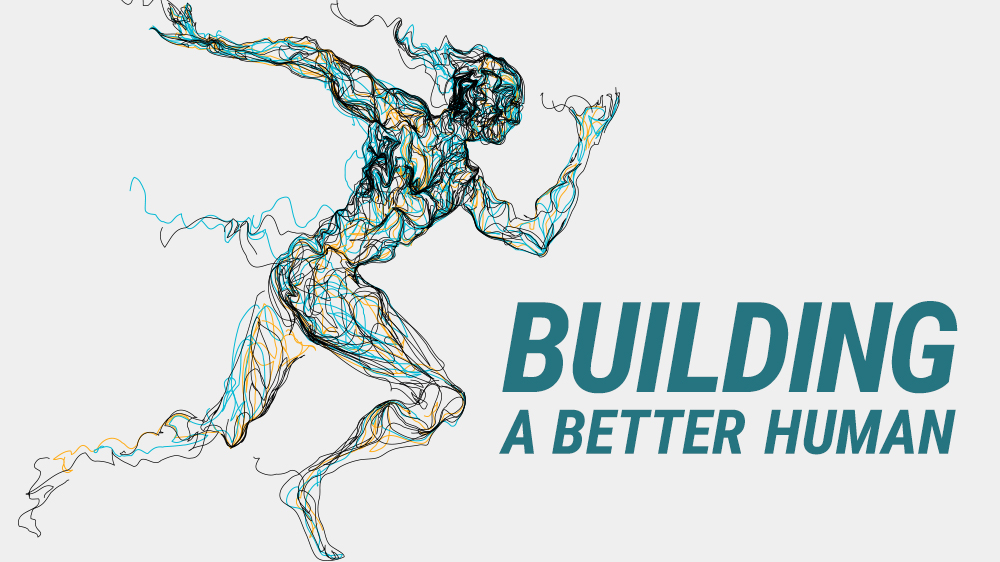Discover the "tend-and-befriend" stress response and its crucial role in health and longevity. Read more to learn how nurturing friendships can enhance well-being.

Explore the complex relationship between the mind and body, uncovering new avenues to empower individuals in managing their health, with Dr. Ellen Langer.

Dr. Lisa Feldman Barrett helps us better understand the intricate mechanisms through which our brain governs our internal functions, shapes our perceptions, and influences various facets of human nature, including emotion and interpersonal dynamics.

Research indicate that experiencing awe has the potential to enhance your happiness, well-being, and profound connections with those in your vicinity. Delve into the captivating scientific exploration of awe.

Ken Wilber provides valuable insights on integral approaches to heal individual physiology and psychology.

What follows is a transcript from when Scott Barry Kaufman, Ph.D, joined us to overturn conventional and overly simplistic notions surrounding the neuroscience of creativity.

What follows is a transcript from our discussion with Darin Olien about how modern conveniences, otherwise known as "fatal conveniences," are sabotaging our health and impacting our resilience.

But what happens when we seek stabilizing, emotionally satisfying stories that give us a cosmic location and identity without accountability to a higher purpose? What follows is a transcription from our interview with Dr. Tara Isabella Burton.

What follows is a transcript from when Dr. Andrew Huberman joined our Co-founder, Daniel Schmachtenberger, to discuss the neuroscience of fear and how we can learn to flip our “courage circuit” in our brain.

As human beings we regularly change—we develop. What follows is the transcript from our interview with Dr. Terri O’Fallon, founder of STAGES, an integrally based model that defines 12 stages in the evolution of human consciousness and meaning-making wisdom.

What follows is a transcript where psychiatrist Daniel Z. Lieberman leads us down a new path: one where we learn how to recognize the influences of the unconscious, making it an ally in helping us become the people we were meant to be.

Dr. Rick Hanson discusses how combining the latest neuroscience of awakening with ancient wisdom can help us tap into peak experiences and even enlightenment itself.

Rich Diviney, joins Jamie Wheal for a discussion surrounding the value and development of attributes. What follows is the transcript from their jam packed discussion surrounding the topics of peak performance, flow states, and optimal psychology.

Dr. Roger Walsh, one of the world's leading experts on the mind, joins us to discuss how integral psychology, altered states, and spiritual practices can help us meet our current global crises while building a “bunker of light” for future generations.

When you open your eyes, do you see the world as it really is? Do you see reality? Neuroscientist and world renowned expert in perception, Dr. Beau Lotto, reveals the science behind the way our brains play tricks on us while also presenting a revolutionary approach to applying these insights about perception to every aspect of our lives.

We optimize our well-being by supporting four foundational quadrants: mind care, body care, relationships, and environment. By using this integrative framework our time on earth can consistently experience beauty and happiness, from which we can offer our greatest contribution in return.

Nicole Prause Ph.D., neuroscientist researching human sexual behavior, addiction, and the physiology of sexual response, debunks popular misconceptions about the science of sex.

Explore the power and science of the brain-body connection.

We humans are in a bit of an ‘emergence through emergency’ scenario. If we want to stay in the game, we’re going to need to seriously level up. We call it neurohacking.

The work of Dr. Andrew Huberman and Brian Mackenzie implements a unique combination of breathing protocols and selective visual stimuli, in an instrumental methodology for adjusting one’s state— specifically the fear state. We discuss how to consciously choose a parasympathetic response over a sympathetic flight or freeze response when faced with real challenge.

The bad news is there are toxins in our environment that can negatively impact our brain function, but the good news is we can heal the brain physically and psychologically with lifestyle changes. Clinical psychologist, Brant Cortright, Ph.D., sheds light on the processes of neurogenesis and explains neuroplasticity. He also describes the relationship between cognitive decline, anxiety and depression.

In this episode Scott Barry Kaufman, Ph.D, humanistic psychologist, cognitive scientist, and educational philosopher joins us to dive deep into the topic of self-actualization for greater happiness.

Lisa Feldman Barrett, Ph.D., top cited scientist for her revolutionary research in psychology and neuroscience, joins us today as she shares some insights about her book, How Emotions Are Made: The Secret Life of the Brain. She expands on her famous TED talk in this discussion as she further explains how neuroscience reveals how our brains work and construct all of our experiences. She shares that what we see, hear and feel is very different from the way we experience it.

Even with our staggering growth in technology and science, there’s a good chance we won’t make it to the year 2100. Change isn’t happening fast enough. The fate of humanity can no longer be left to politics or policy. Growth needs to start on a personal scale. We need, at a fundamental level, to become better humans.